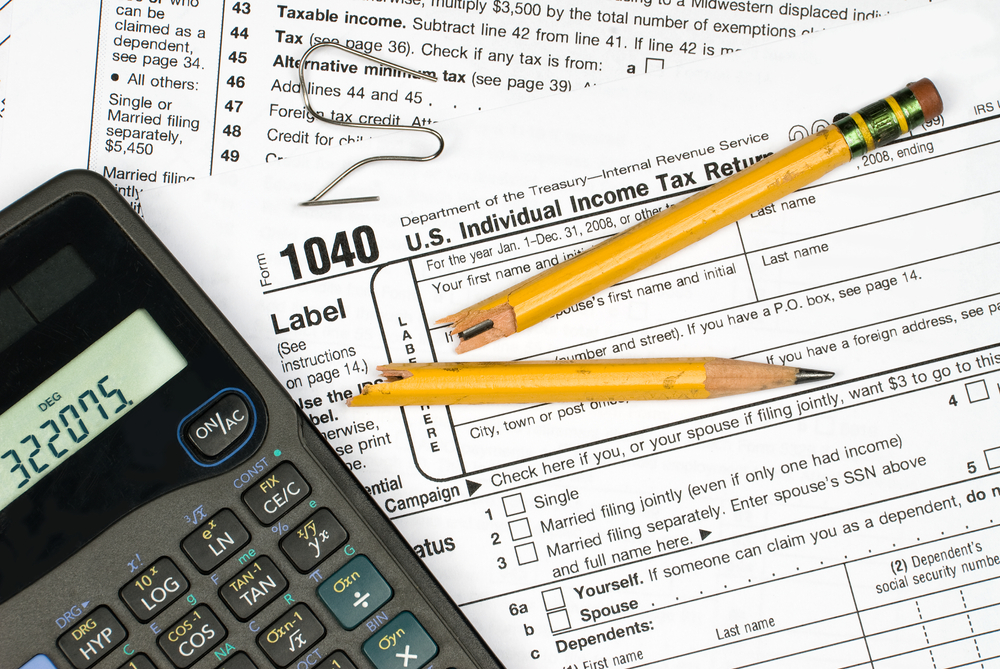
Tax season. It’s the time of year we all not-so-secretly dread.
It’s a stressful time for so many of us. It’s even more complicated if you happen to be your own boss. There are naturally more complex intricacies and record-keeping involved, but rest assured: filing your taxes doesn’t need to be a fiasco. There are ways to get ahead of the game to ensure you’re ready for this time of year.
But how do you know when you’ve got what you need to file your taxes with confidence? When you sit down at your computer, how can you make it less painful than it had been in previous years?
How can you best preserve your time without the added stress of tax season? It turns out to be a simple yet effective combination of proactiveness, organization, and maybe just a little bit of help.
You Stayed Ahead
You did yourself a huge favor by not waiting until the last minute to get your paperwork and your receipts in order. You successfully avoided unwelcome anxiety by implementing business practices that kept you organized, and more importantly… sane!
Untangling all your business-related expenses from the prior year can stall your progress. The key is consistent bookkeeping methods. Accurate, thorough, and up-to-date books will make it so much easier on you during tax season. It’s also an essential business skill to have in your ever-growing tool belt.
Keeping up with your books also gives you the advantage of knowing exactly where you stand in your business. Whether you decide to hire a bookkeeper or manage your financial transactions on Quickbooks or another platform, you’ll be glad you kept your books in order.
You Stayed Organized With Your Books
As a business owner, you’ve got a lot on your plate. In addition to keeping your business thriving with solutions that fuel your passions and truly help people, you’ve also got to keep a sharp eye on all your financial transactions.
The accuracy of your books is essential to keeping your business in good financial shape. You’ll be ready for tax season if you’ve done the following actions:
Your Personal Account is Separate From Your Business Account
This practice will save you a ton of time while combing through any business-related expenses when it’s tax season. It’ll be super easy to miss relevant transactions if you’ve kept both your personal and business accounts as one. Plus, you don’t want to miss out on any potential deductions. If you’ve separated these accounts, this process will be so much cleaner and simpler for you.
You Categorize Your Expenses
Properly recording each business-related transaction, accurately identifying the type of transaction and the corresponding reason regularly will simplify your to-do list at the end of the year. Each business-related transaction should be properly recorded, accurately identifying the type of transaction and the reason for it. Another tip is to be consistent and specific with your record keeping. For example, let’s say you hire a copywriter to write your newsletters and website. You decide to mark this as “Marketing” in your records. A few months later, you rehire that same copywriter to handle your social media presence, but instead, you decide to record this as “Social Media” instead of “Marketing.” Try to remain as consistent as possible when you categorize your expenses so that there’s no uncertainty when it comes down to your taxes.
You have proof of your deductions.
Whether you’ve decided to go entirely paperless or if you still have an organized box full of physical receipts, you’ll have the proof you need for your deductions. This also comes in handy in the event of a potential IRS audit. You’ll have the receipts necessary to back up the deductions you claim on your taxes. Having your receipts will also have you ready to claim all of the relevant deductions for your business.
Your Bank Statements Match
The goal is your peace of mind. And to do this, I’d like to emphasize another critical part of your bookkeeping practices: reconciling your bank accounts. This needs to be done consistently throughout the life of your business. Basically, you need to ensure that your bank statements match the expenditures and income flowing in.
This piece pulls double duty. Not only does this practice help confirm that your books are balanced, but it can also save you some headache with any potential mismatches you may find when you do your books. Doing this consistently can save you (or your bookkeeper) a ton of time. This is a sure sign that your books are healthy and ready for filing.
You’re Considering Hiring a Professional
Ultimately, hiring a professional bookkeeper or CPA would be my recommended course of action to confirm that your books are ready for tax filing.
Are you certainly capable of mastering this one on your own? Absolutely. After all, you’ve created a bustling business from the ground up. No easy feat! But if you find yourself in a persistent state of worry as this is not an area you feel particularly confident about, having a professional take the reins on your business’s financial aspects would be a reasonable course of action.
Investing in a professional bookkeeper allows you to concentrate on your business’s more creative aspects while having someone with an experienced eye keep your books in good shape.
Tax season is just around the corner! So, if you’re ready, I’m booking free consultations to help evaluate your business and your books. I can’t wait to get in touch!
